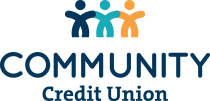A split-second decision at the cash register can have lasting financial consequences. For many, the decision to pay using a credit card may be as simple as flipping a mental coin. For others, it’s as paralyzing as choosing the correct answer to the million-dollar question on a popular game show. Paying with cash is sometimes the best option. But, there may be times when a credit card is the preferred method.
Consider paying with cash when:
Money is tight.
Adding to your credit card balance when money is tight will make it even more challenging to take control of your finances. As the outstanding balance on your credit card increases, so does the minimum required payment. Keep the card at home under lock and key until your financial situation improves.
Shopping at independent businesses.
Small, pop-up businesses such as roadside farmers and craft show exhibitors may only accept cash. Credit card companies charge merchant fees resulting in less profit, so these small businesses sometimes adhere to a “cash only” policy. Show your support of these businesses and keep spending under control by paying with cash.
You have income and expenses, but no budget.
Spending without limits is fun – until you run out of money and still have bills to pay. Cash payments can help you set limits by spending category even if you don’t have a formal budget. When consumers use credit cards in the absence of a budget, debt payments can increase quickly, making repayment difficult.
You’re on a debt reduction plan.
Improving your credit score, saving for a down payment for your first home, or preparing for early retirement are all reasons to commit to a debt reduction plan. Paying down or eliminating your credit card balance demonstrates to potential lenders that you’re not taking on more credit than you can handle. Fewer debt payments allow you to free up cash to spend on other financial goals.
Consider paying with a credit card when:
Improving credit health is your goal.
Credit scores are a numeric reflection of credit health. FICO® Scores are used in the majority of lending decisions in the United States. Five key credit behaviors influence this score, but over half of the rating is determined by two factors: payment history and amount of debt. Making on-time payments to your creditors and keeping your credit usage low have the most significant influence on your credit score. Paying cash for your purchases doesn’t help build your credit score.
Convenience is of primary importance.
Carrying large amounts of cash is not only, risky but also inconvenient. If the money is lost or stolen, recovery is unlikely. Even a thick wallet doesn’t guarantee you’ll have enough cash to pay for your purchase. The taxes alone can tip the scales, leaving you short-changed. You must either leave the store empty-handed or hope the retailer will hold the items while you run to the nearest ATM to withdraw more cash. Paying with a credit card that has a high credit limit can save you the trip.
You have travel plans.
While you might prefer to pay cash for your hotel room, rental car, or airline tickets, a credit card is often required at most nationally recognized companies. Using a credit card helps to track your expenses, provides the potential to earn points or travel rewards, and includes fraud protections. None of these benefits are available when you pay with cash for your travels.
How you decide to pay for purchases will influence how quickly you achieve your financial goals. You may even forgo the purchase altogether, leaving more money in your bank account. Regardless of your decision, consider how your payment choice impacts your financial plans before you step into the checkout line.
Community Credit Union (CCU) offers a variety of credit cards to meet your financial needs. You can select a CCU Visa ® credit card to build or repair credit, take advantage of low-interest rates, or earn rewards. It’s your choice. Please visit one of our branches or call us at (800) 862-7009 to discuss which credit card is the best fit for your finances.

